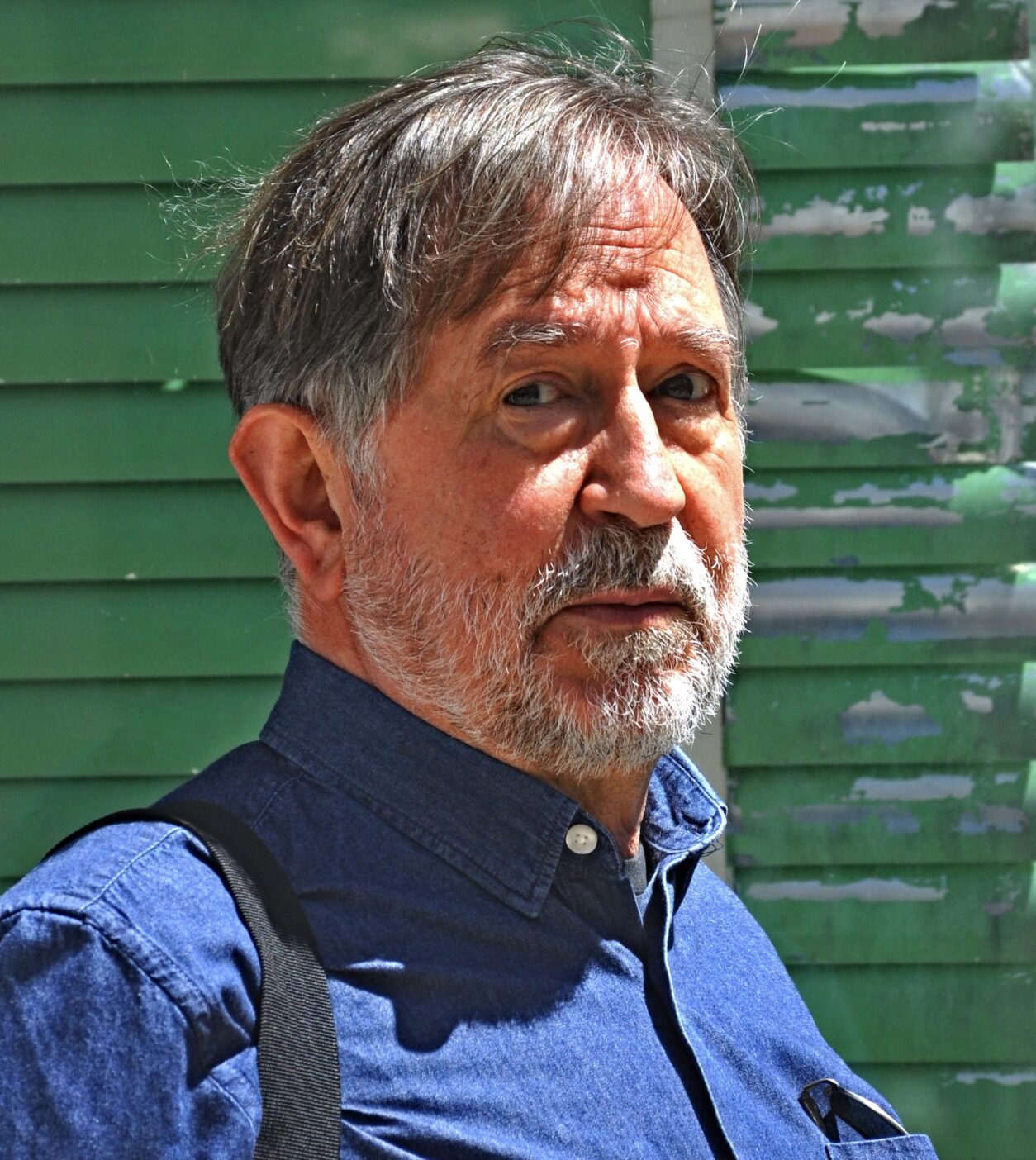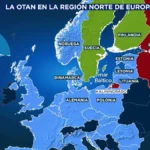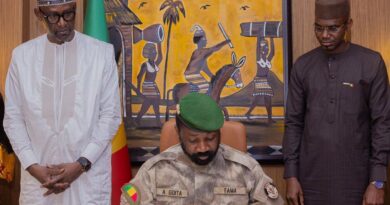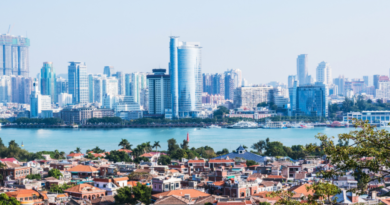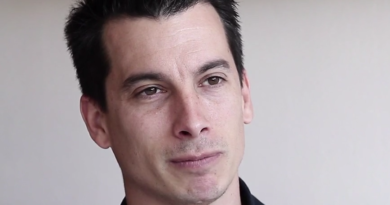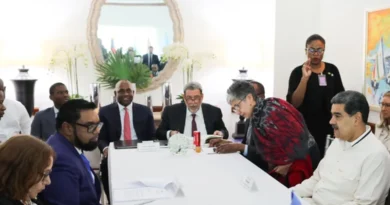Suso de Toro: I declare myself against the idea of a unitary and centralist Spain embodied by the House of Bourbon
JAYRO SANCHEZ
Suso de Toro is a Galician writer with more than twenty published books of fiction, theater and essays. He has received various distinctions, including the Spanish National Fiction Prize for his novel “Trece badaladas” (Thirteen Bells) or the Critics' Prize for “Tic-Tac”.
In 2019 he ran in the general elections, closing the list for A Coruña of the Galician Nationalist Bloc (BNG). We chatted with him about the territorial model and the fact that Galician, Catalan and Basque can be spoken for the first time these days in the Spanish Parliament.
Last week, the Spanish Congress of Deputies approved by an absolute majority a proposal to reform the Regulations of the Lower House that will allow its members to use co-official languages in the course of their parliamentary activity. How has this news been received among groups called “peripheral nationalists”?
First of all, I would like to say that the term "peripheral nationalism" does not conform to my political and ideological conception of plurinational Spain. My country, before any other, is Galicia, although it is evident that it is subject to a system of power relations whose central point is in Madrid.
Regarding the reform of Congress, I think it is having a greater effect than many thought it would achieve. Certain political forces and the media have been saying for days that it will cost a lot of money to implement it, but I would like readers to compare the expenses it will entail with the figures in the budgets allocated every year to the Royal Family or to the forces of the NATO.
The provision has no consequences on the structures of political power or economic dominance... It only has an ideological effect, because the Spanish State is based on the idea that its subjects have a homogeneous ideology, language and national culture. But this image does not correspond to that of our social reality. Many of its members have another culture and another language, and, until now, we had not been adequately represented in the institutions of Madrid.
In reality, the changes have only been described as disturbing in certain areas of the peninsula where the idea of the "Spanish nation" is based on the Spanish language, the monarchical political system, the red flag and some other cultural elements. Here, the reform has been seen differently. Many Galician nationalists think that it represents an integrating mechanism, and celebrate its approval as a victory.
Although, in my opinion, there is a fact that most people miss: we are now more represented within the Madrid Parliament, but the problem is that we have never considered it as its own institution.
“A TIME OF CHANGE IS OPENING FOR INTERNAL POLITICAL RELATIONS IN SPAIN”
The processing of the reform seems to be a gesture by the Government in office towards the Catalan, Basque and Galician nationalists, whose parliamentary support is essential to achieve a new presidential investiture of Pedro Sánchez. Is it a simple wink or the precedent of a general reformulation of territorial policy?
Do you know the saying: they hang by force? Nobody goes to the noose willingly, and I believe that the leader of the current Council of Ministers is no exception to this rule. The paradoxical result of the last elections is marked by a profound ignorance of what is happening in Catalonia.
The Catalans who have voted for Junts per Catalunya (JxCat) have done so because it meant supporting a policy of resistance against that advocated by the centralist State. Many of the parliamentarians in the Madrid Congress prefer the proposals of the Republican Left of Catalonia (ERC) to those of Puigdemont's party because they are more inclusive.
The part of Catalan society that supported JxCat has forced the Spanish State to reach an agreement seriously. Since his exile in Belgium, former president He has clearly stressed that he wanted concessions in advance because he felt cheated by the governments in Madrid and did not trust them. It is normal. From my point of view, Sánchez has reached an agreement because he has been forced to do so.
The attitude of former socialist president José Luis Rodríguez Zapatero towards the nationalist forces was different. He was the first leader of the Spanish State who spoke of a plural country. He was aware that the concept of "nation" is highly debatable today, and, during his stay in power, he made a gesture of goodwill towards his counterparts by moving government institutions from Madrid to Barcelona.
Pact strategies were not the first option in Sánchez's political program, but he cannot retrace the steps he has taken. He has already made significant gestures, so there is a real open path to continue dialogue. Now the amnesty has to come, one of the conditions sine qua non from Together.
A few months ago, the President of the Government said that he was going to transfer Puigdemont to Madrid and that he was going to put him in jail. He spoke as if he were a Roman emperor leading a greyhound by the neck or tied to his cart... But he has been forced to change his speech. I believe that new steps with political significance will be taken, and that a time of change is opening for internal political relations in Spain.
You mention Catalonia, but you are Galician. Will these changes be made throughout Spain?
The nationalities that earn it will get them. Unfortunately, in our country we have a Government chaired by the Popular Party (PP). At the moment, the BNG is the first opposition force and has a good candidate: Ana Pontón. But the Spanish Socialist Workers Party (PSOE) has always been very weak in Galicia, and now, in particular, it is in a rather low moment. It is clear that we have to do more political work to get what we want.
He speaks of plural Spain, although the nationalist movements of the different regions are also divided among themselves because they have very diverse political projects. How could they configure an alternative and plurinational state apparatus?
Years ago, I discussed this issue with a French diplomat and tried to make him see that Spanish society is divided and has a problem of internal integration that will force it to rethink the ideas of "patriotism" and "nation." The creation of the new State has to be done based on political projects of coexistence. But the leaders of the current institutional structure are going to try to prevent it at all costs.
If you stop to think about it, everything is in Madrid. The main railway lines, the center of the road network, the airport with the most international connections in the country, the most important media... All of this indicates how territorial power relations work within the Spanish State.
For example, certain energy companies are dedicated to extracting the products they need in Galicia, but then are quoted for their commercial activities in the Spanish capital. In the end, we take all the losses and do not obtain any benefits.
The project of plurinational Spain must be based on the existence of several centers of power that are distributed throughout the territory of the peninsula. We have to defend ourselves from the great black hole that is Madrid, which monopolizes all job opportunities, educational centers, company headquarters and the talent of young people.
It is clear that we must look for a political fit that is presented as an alternative to the current one, but the forces that are going to promote it must have tangible power. If we are having this conversation, it is because Catalonia has defended itself and has managed to build mechanisms of its own strength that allow it to negotiate.
“THE EU IS NOT BASED ON A UNION OF ITS PEOPLE, BUT ON AN 'EXCHANGE OF STICKERS' BETWEEN THE STATES THAT MAKE IT UP”
The Minister of Foreign Affairs, Mr. Albares, is also fighting in the General Affairs Council of the European Union (EU) so that the Spanish co-official languages can be used at the European level. So far, Finland and Sweden have not openly opposed it, but they have their doubts...
They are countries that have a historical reactionary and right-wing tradition. At the moment, Finland is the State most favorable to the North Atlantic Treaty Organization (NATO), American hegemony and the disappearance of Europe. But look, for example, in the case of Denmark. Three days ago, she approved the political recognition and use of the Icelandic and Faroese languages in her Parliament.
In Europe, the attitude for or against such measures is characterized by intra-state pacts. The EU is not based on a union of its people, but on an "exchange of stickers" between the States that compose it. The success of the proposal on our languages will depend on the pressure that the Spanish State can exert on its counterparts to impose it.
In fact, BNG MEPs such as Camilo Nogueira or Ana Miranda already express themselves in Galician in the European institutions... Although they do so in its Portuguese variant. That is why we would like to have political recognition of our language.
From your latest interventions, it is clear that certain sectors of Spanish society do not feel comfortable with the territorial model proposed in the 1978 Constitution. What specific modifications would you like to make to it?
I believe I speak for all those who claim the idea of plurinational Spain, whether they are from Galicia, the Basque Country, Catalonia, Valencia or other regions, when I affirm that our political dissidence is based, among other issues, on republican values. I declare myself against the idea of a unitary and centralist Spain embodied by the House of Bourbon.
Therefore, the first thing we would do would be to change the monarchical institutional framework for one of a republican and federal or confederal nature. The next step would consist of establishing sovereignty pacts between the different citizenships: the Galician, the Catalan, the Castilian, the Basque... We completely reject the idea of the "Spanish nation", which, in reality, was born in the 1874th century, during the Bourbon Restoration (XNUMX).
I insist on the idea that I previously developed about the different political projects within each federal Republic. How should this complex plurality be managed?
During the agony of the Union of Soviet Socialist Republics (USSR), some of its former components proclaimed themselves separate States of the old federation. These were the cases of Estonia or Lithuania, whose Parliaments declared independence.
In Catalonia, what happened six years ago was something similar. The entity that proclaimed its unilateral division of the Spanish State was the Generalitat, an institution that has its origins in the 1977th century AD, which was recognized by the Second Republic and which existed in exile during the Franco regime until it was able to be reinstated in the year XNUMX thanks to Josep Tarradellas.
Although no one remembers it today, in the 1990s, the Galician Parliament debated the right to self-determination. Today it would be a crime because, since then, the Constitutional Court has legislated in many ways to eliminate the rights of expression and discussion... It is in the representative institutions of prior existence where these issues must be resolved.
“SÁNCHEZ IS A VERY INTELLIGENT POLITICAL CHARACTER, EVEN THOUGH I WOULD SAY HE LACKS DEEP CONVICTIONS”
The controversy over Spanish territorial policy has resurfaced since the announcement of the results of the last general elections, held two months ago. The conservative bloc in Congress, made up of the PP and Vox, strongly opposes the approval of the reform on co-official languages. What arguments are they based on for this?
These political parties express the already established interests of the Spanish oligarchy. Its leaders are not interested in altering the rules of power, and Jxcat's challenge has forced them to take action.
A few days ago, several media outlets published a news item saying that 90% of the declared Spanish fortunes reside in Madrid. As I said before, everything is there: state officials, lawyers, courts, tax contributions from companies...
The PP and Vox defend this structure together with some sectors of the PSOE, such as those represented by Felipe González, Alfonso Guerra, Emiliano García Page, Guillermo Fernádnez Vara or Javier Lambán. But among the socialists there are other leaders more inclined to democratic dialogue.
Sánchez is in the middle because he is a very intelligent political character, although I would say that he lacks deep convictions. However, his pragmaticity allows him to dialogue comfortably. And dialogue is necessary in these kinds of situations. It is very likely that he will continue to head the Council of Ministers in the near future.
In the event that the political theses that you defend were supported and the majority of the country wanted to apply them, the Constitution would have to be reformed. What conditions would be required for this?
The modification of the constitutional text depends on the correlation of forces. A few years ago, Zapatero agreed with Rajoy to avoid EU intervention in the Spanish State due to the serious financial crisis of 2008. In Italy, the European Central Bank (ECB) removed former president Silvio Berlusconi from power for the same reasons. In order for the daughter of King Felipe VI to succeed him on the throne, the Constitution will have to be reformed…
Therefore, that is not the problem. The key is whether or not a crisis opens that leads to a constituent process. To carry out a transformation of such magnitude, republican nationalists would have to have significant social support and reach agreements with the centralist left. Then a referendum could be called for citizens to choose whether they continue to want to be part of a monarchical political system or change it to a republican one.
The point is that, to avoid the proclamation of plurinationalism in Spain, the current Spanish regime was configured in such a way that the Chief of the Armed Forces was a king of the House of Bourbon. The ideal situation so that we could all debate without fear would be to take that power away from the monarchs.
Taking all this into account, what prospects do you think await us?
Just today I was passing by a friend on the street and I was telling him that I am sure that I am going to die without seeing a Republic proclaimed. These are somewhat pessimistic words, although you have to understand that I was born during the Franco dictatorship and I have spent a large part of my life living under the post-Franco regime.
But hey, nothing is impossible. Nobody would have said that the USSR was going to collapse, nor that the Americans would lose the wars in Vietnam and Afghanistan... You never know. Maybe we still have a surprise.

